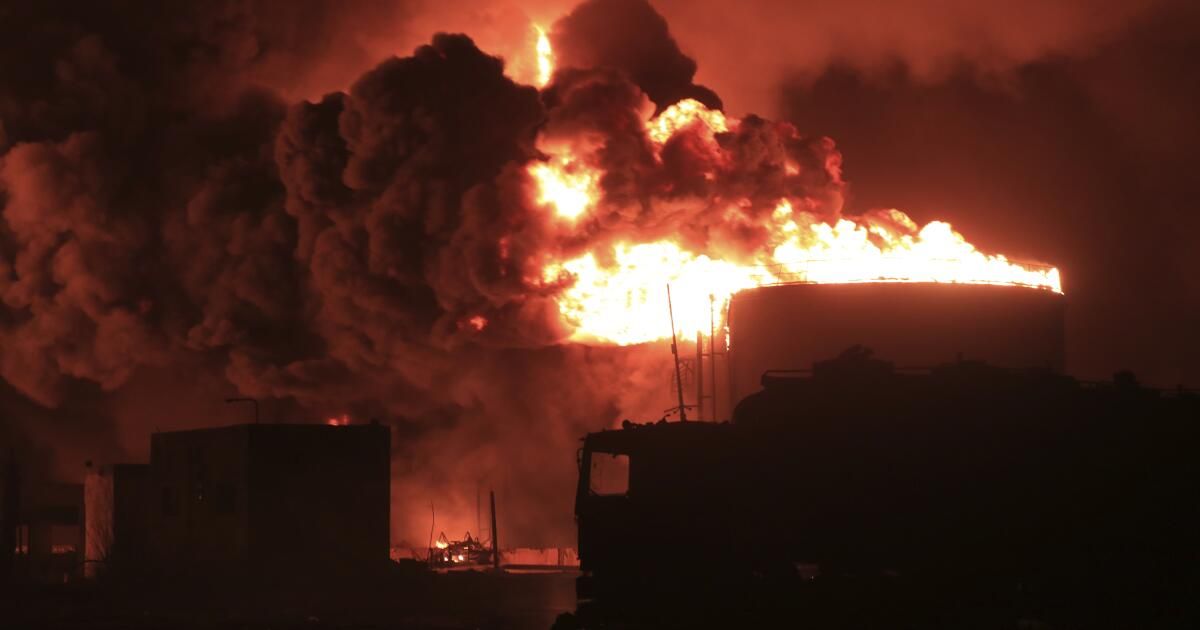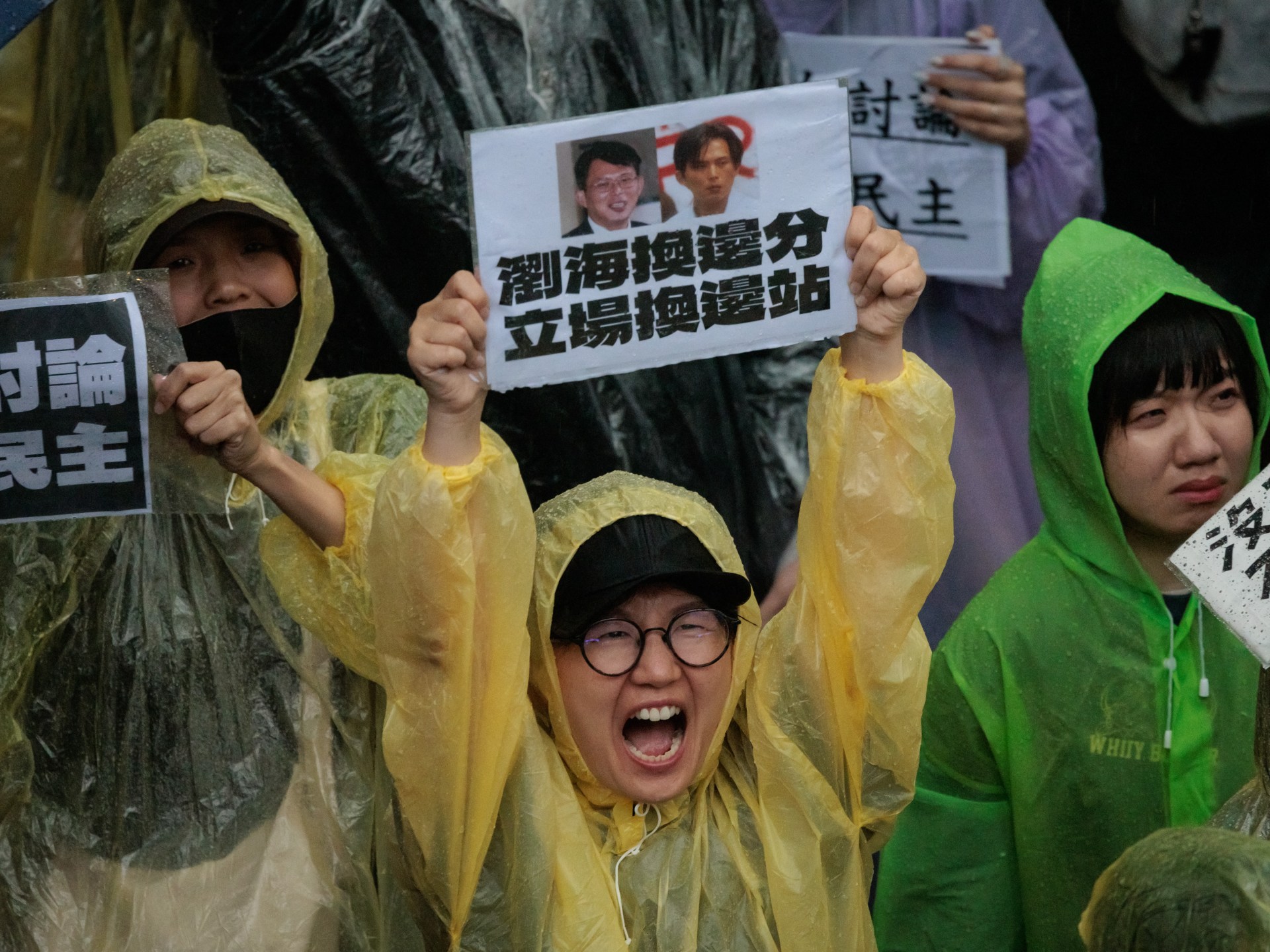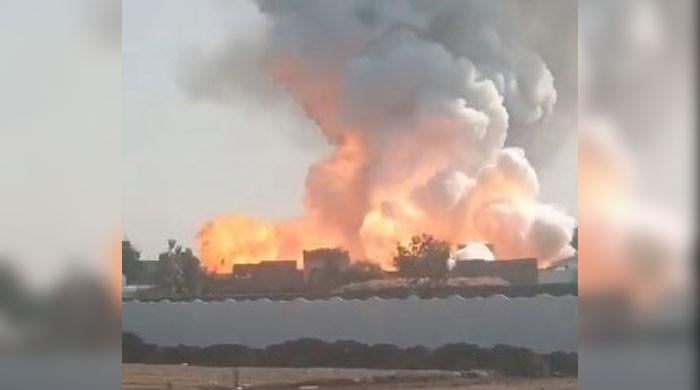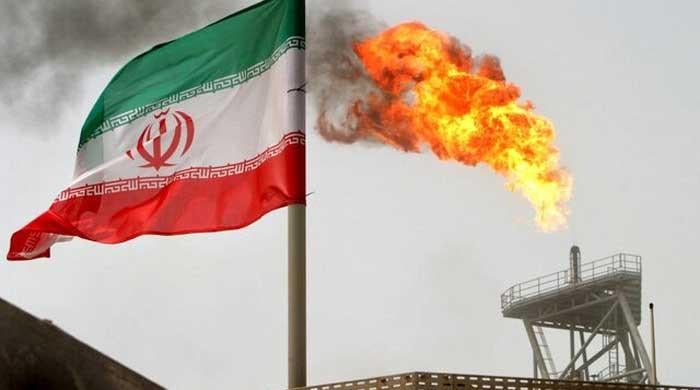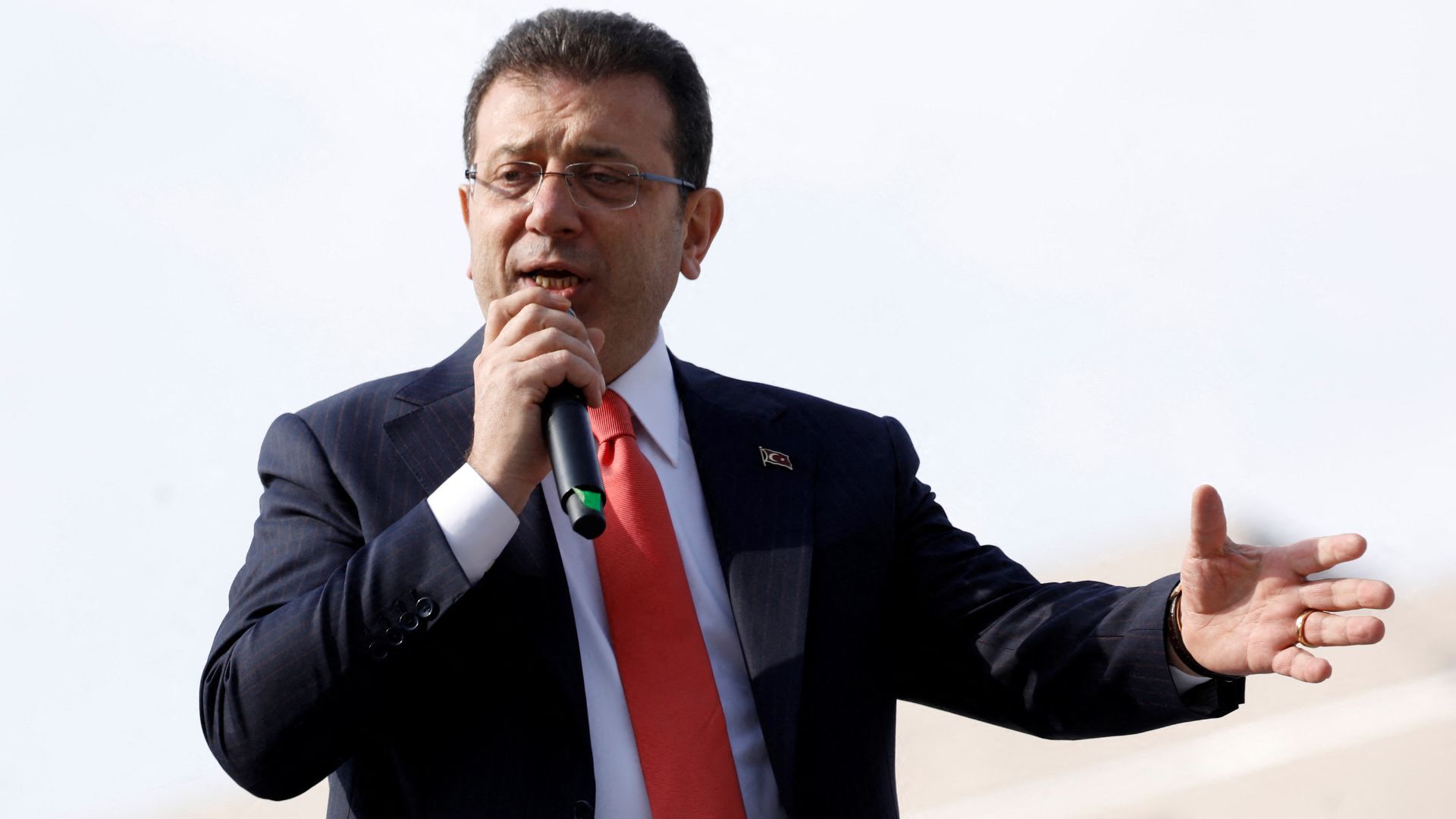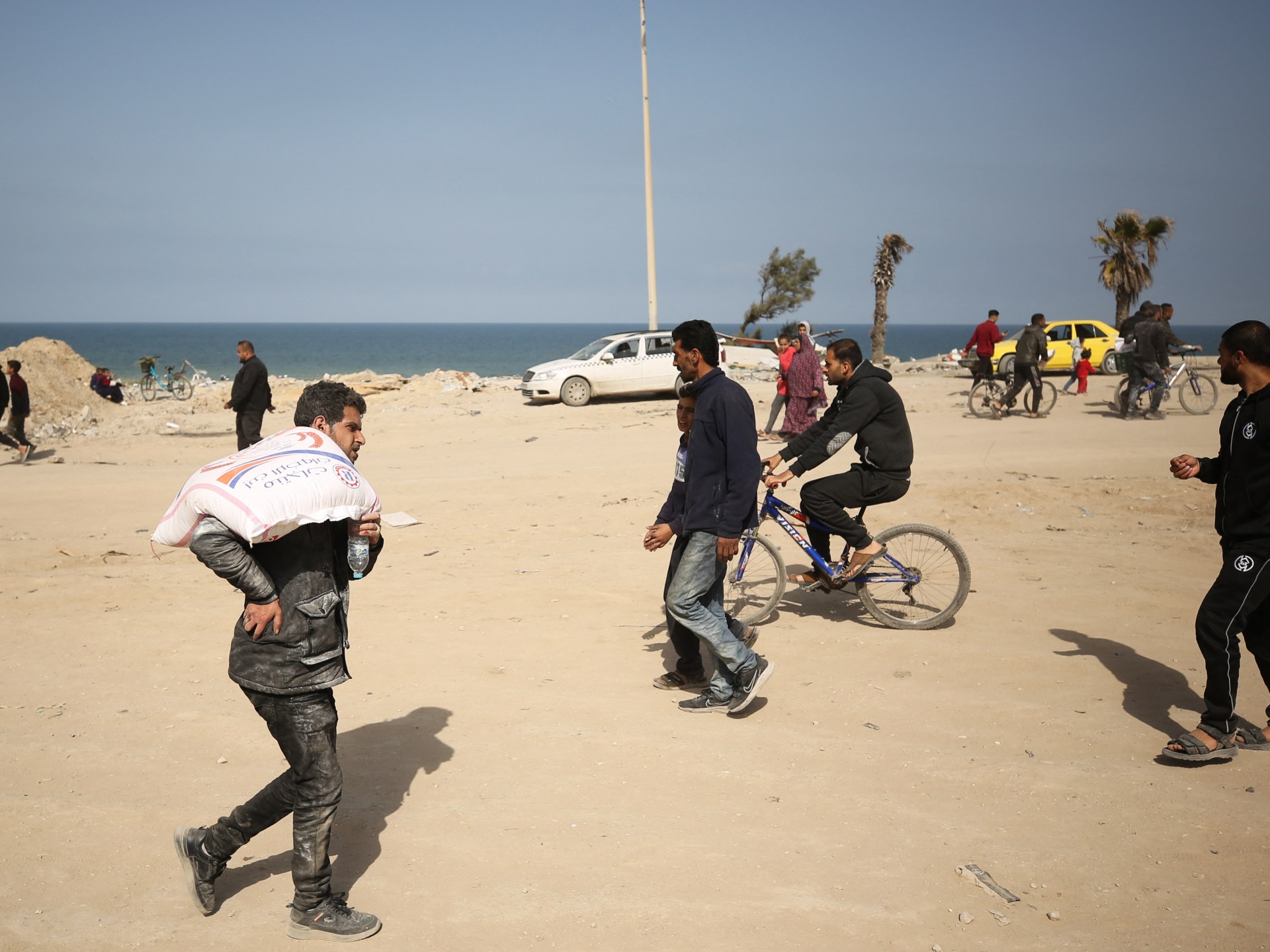After more than 1,600 kilometers and almost three hours of flight, the squadron of Israeli F-15 and F-35 aircraft launched their missiles on the port of Hudaydah, in Yemen, leaving in their wake an uncontrolled fire and renewed fears of a Middle East engulfed in a wider war.
Israel's retaliatory strike was intended as a harsh message to a militant group that had targeted Tel Aviv with a deadly drone strike the day before. But experts say Israel may have given Houthi rebels the legitimacy they have long sought, prompting them to step up attacks on Israel and ships in the region.
The Israeli attack on Saturday night, which killed six port workers and wounded dozens, was the country's first on Yemeni soil. The drone strike by the Iran-backed Houthi militia, which controls large swathes of Yemen and is allied with Hamas, managed to penetrate Israeli defenses, killing one civilian and wounding at least 10 others.
An injured Yemeni worker receives treatment at Al Thawrah hospital in Hudaydah, western Yemen, following Israeli strikes.
(Associated Press)
If anything, Israel’s attack will likely further embolden the Houthis, said Hisham al-Omeisy, a U.S.-based Yemeni analyst. It could contribute to their oft-repeated narrative of defending Muslims against the U.S. and Israel.
“The Houthis desperately wanted this direct confrontation to legitimize their claim of being in a fight with Israel,” Omeisy said.
The group, part of a regional network of Iranian-backed factions operating in Lebanon, Yemen, Syria, Iraq and Gaza, has been launching missiles and drones at Israel (almost all of them intercepted). It is demanding that Israel end the war in Gaza, which has killed more than 39,000 Palestinians in the territory. The war began after Hamas attacked Israel on October 7, killing about 1,200 people and taking about 250 hostage.
The Houthis have also repeatedly attacked ships transiting the Red Sea and Gulf of Aden, including those with no ties to Israel. The United States and Britain have launched multiple rounds of joint strikes against the Houthis over the attacks on the ships.
Israel's strikes in Yemen destroyed storage tanks holding more than 150,000 tons of fuel, along with several cranes and docks, said Mohammed Albasha, a senior Yemen expert at the U.S.-based consultancy Navanti Group.
Days later, fires are still burning at the port, a crucial source of aid and fuel for Houthi-controlled areas where most of the country’s 33 million people live. Although firefighters have yet to fully extinguish the flames at the port’s fuel depot and power plant or clear debris from destroyed cranes, officials said Monday that the port is operational.
In the hours after the attacks, Israeli Defense Minister Yoav Gallant called the attack a message not only to the Houthis but to Israel's regional enemies.
“The fire currently burning in Hudaydah is visible throughout the Middle East and its significance is clear,” Gallant said after the Israeli attack.
“The Houthis attacked us more than 200 times,” Gallant said. “The first time they harmed an Israeli citizen, we attacked them. And we will do so wherever necessary.”

In the hours after the attacks, Israeli Defense Minister Yoav Gallant called the attack a message not only to the Houthis, but also to Israel’s regional enemies. “The fire currently burning in Hudaydah is seen throughout the Middle East and its significance is clear,” he said.
(Jacquelyn Martin/Associated Press)
But it's a message the Houthis are unlikely to hear, experts say.
“The Israeli attack was meant to shock and terrify, but unfortunately we are dealing with the Houthis,” said Hisham Omeisy, a Yemeni analyst based in the United States.
The Houthis, who began as anti-government rebels, had been engaged in years of pitched battles with the Yemeni state, seizing the capital, Sanaa, in 2014 and then turning their sights on the rest of the country. To stop them, a Saudi-led offensive — bolstered by American arms, intelligence and logistical support — launched a devastating air campaign and blockade that brought Yemenis to the brink of famine. By the time a ceasefire was signed in April 2022, the Houthis were still even stronger in the areas they controlled.
“Shock and awe and the use of overwhelming power didn’t really work when it came to a coalition of countries attacking them,” Omeisy said. “That’s why it won’t work now.”
Since the attack, Houthi officials have promised a “massive” response to the Israeli assault, and on Sunday launched a ballistic missile at Israel that was intercepted. That same day, the group’s leader, Abdul Malek Al-Houthi, gave a televised address in which he said he was “very happy” that the group was now engaged in a direct battle with Israel and the United States.
“Israeli aggression against our country will contribute to further escalation of our operations against it and also to the development of our capabilities, and the enemy will lose and face more dangers,” he said.
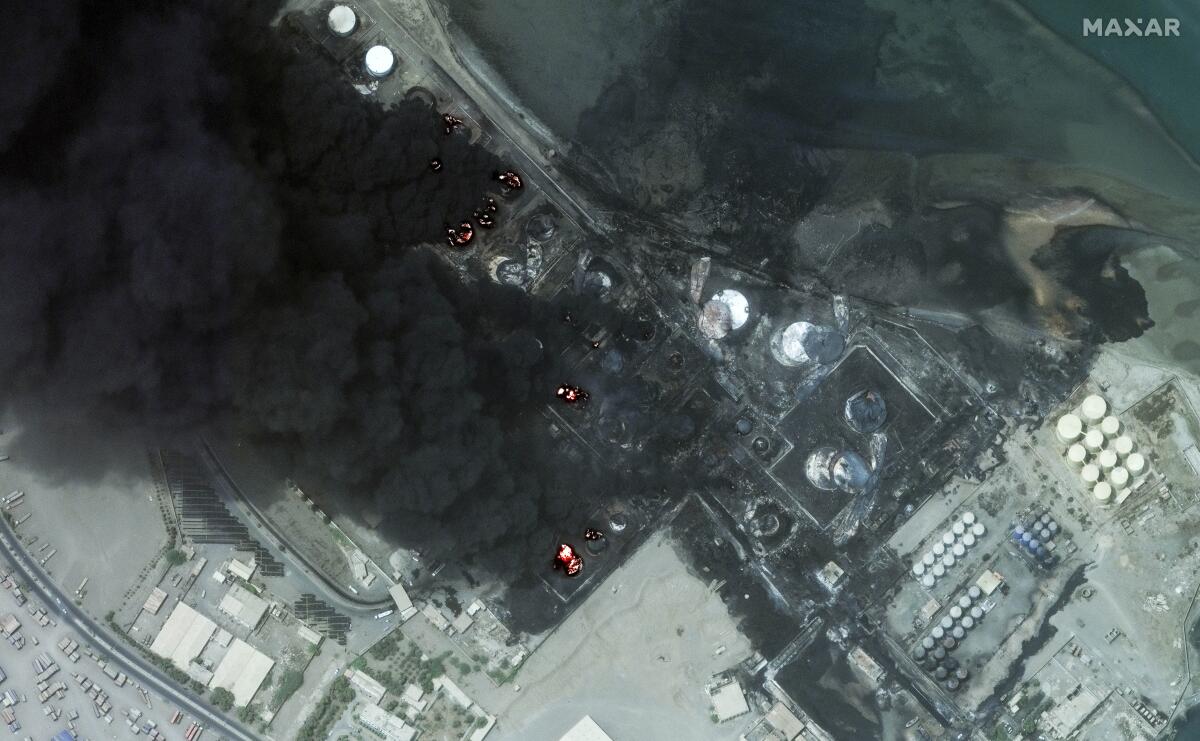
A satellite image shows a close-up view of burning oil tanks in Hudaydah, Yemen.
(Maxar Technologies / Associated Press)
Lebanese Shiite group Hezbollah, the most powerful armed faction of Iran's so-called Axis of Resistance, called Israel's attack a “foolish step” that “heralds a new and dangerous phase of extremely important confrontation at the level of the entire region.”
Israel has traded attacks with several of Iran's Axis groups, which also include factions in Syria and Iraq, bringing the Middle East closer to all-out war.
The expectation is that the Houthis, as well as their allies in other Iran-backed factions, will step up their attacks both against Israel and in the Red Sea, using more advanced Iranian-supplied weaponry than the group has possessed in the past, Albasha said.
“Historically, Iran did not provide the Houthis with the most modern technology. Now it does,” he said. He noted that the drone used in the Tel Aviv attack, which the Houthis called Yafa (the Arabic name for Jaffa), was a modified version of the Houthi-made Sammad 3 drone, but with a newer engine and possibly improved avionics.
Last week, the Houthis used kamikaze drone boats to attack two ships in the Red Sea. The drones were reportedly an improved design of the Toofan, a drone boat with a 2,000-kilogram payload capable of reaching 72 kilometers per hour.
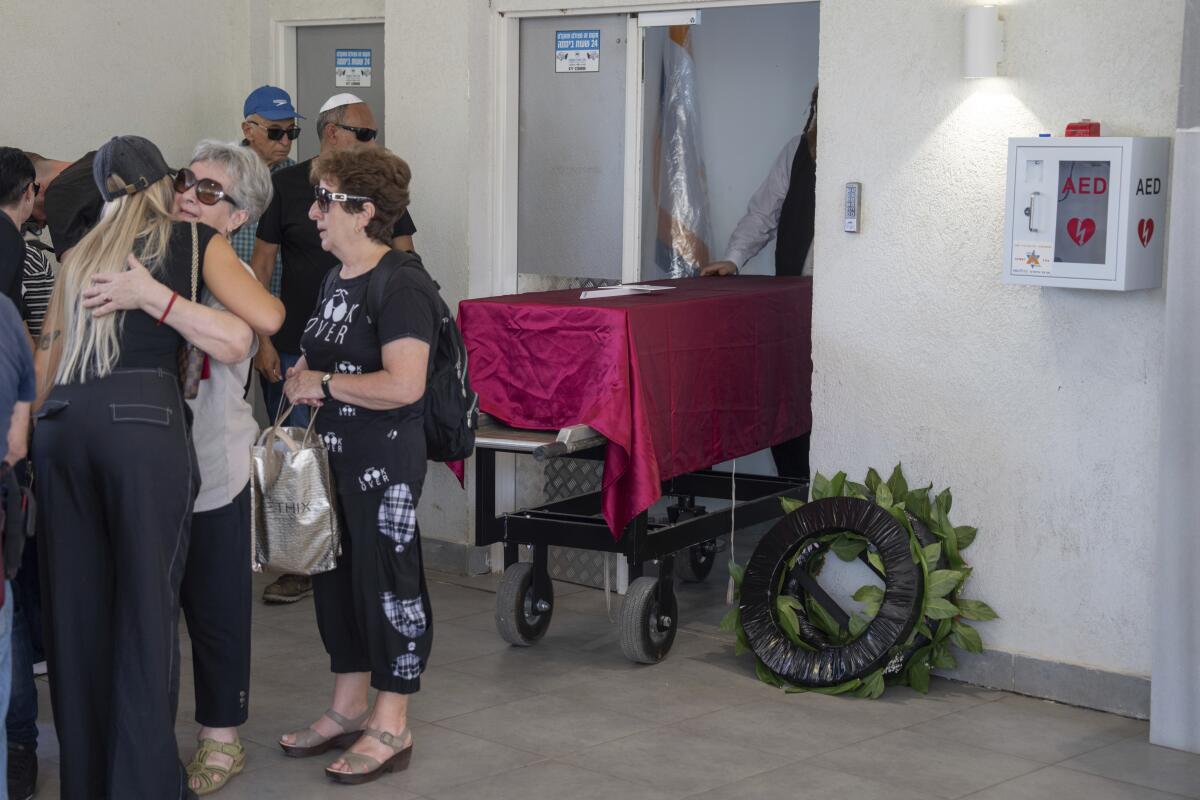
Relatives and friends of Yevgeny Ferde comfort each other during his funeral in Rishon Lezion, Israel, on Sunday. Ferde was killed in Tel Aviv by an explosive drone launched by the Yemeni Houthi militant group.
(Ohad Zwigenberg/Associated Press)
That any escalation would have consequences for Yemen, already the region's poorest country and one of the most devastated by war, was not necessarily a problem for the Houthis, said Fatima Alasrar, a non-resident scholar at the Middle East Institute think tank.
“The Houthis have not hesitated to take advantage of the conflict to expand their influence and capabilities,” he said.
“They will continue to attack regardless of the consequences.”

